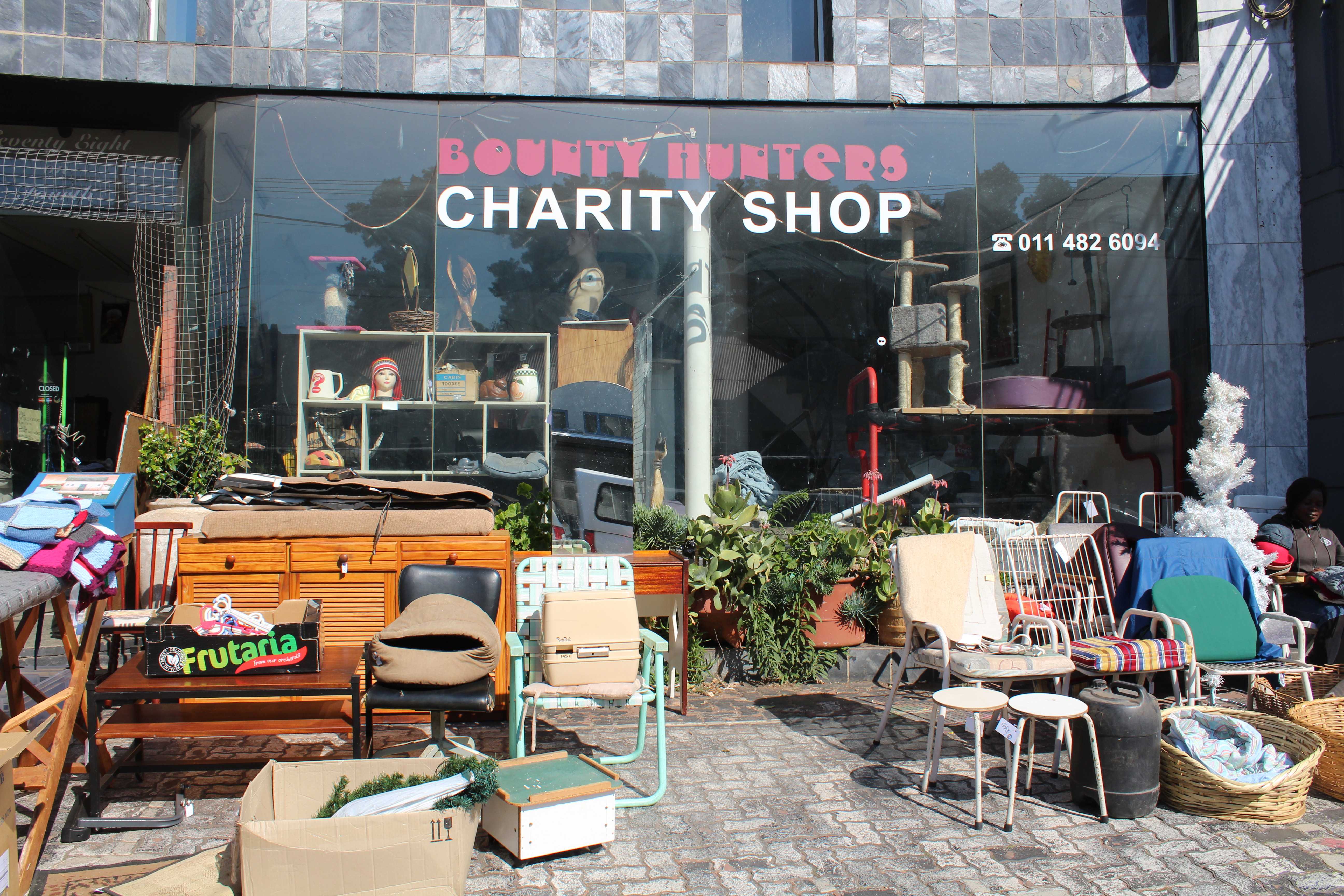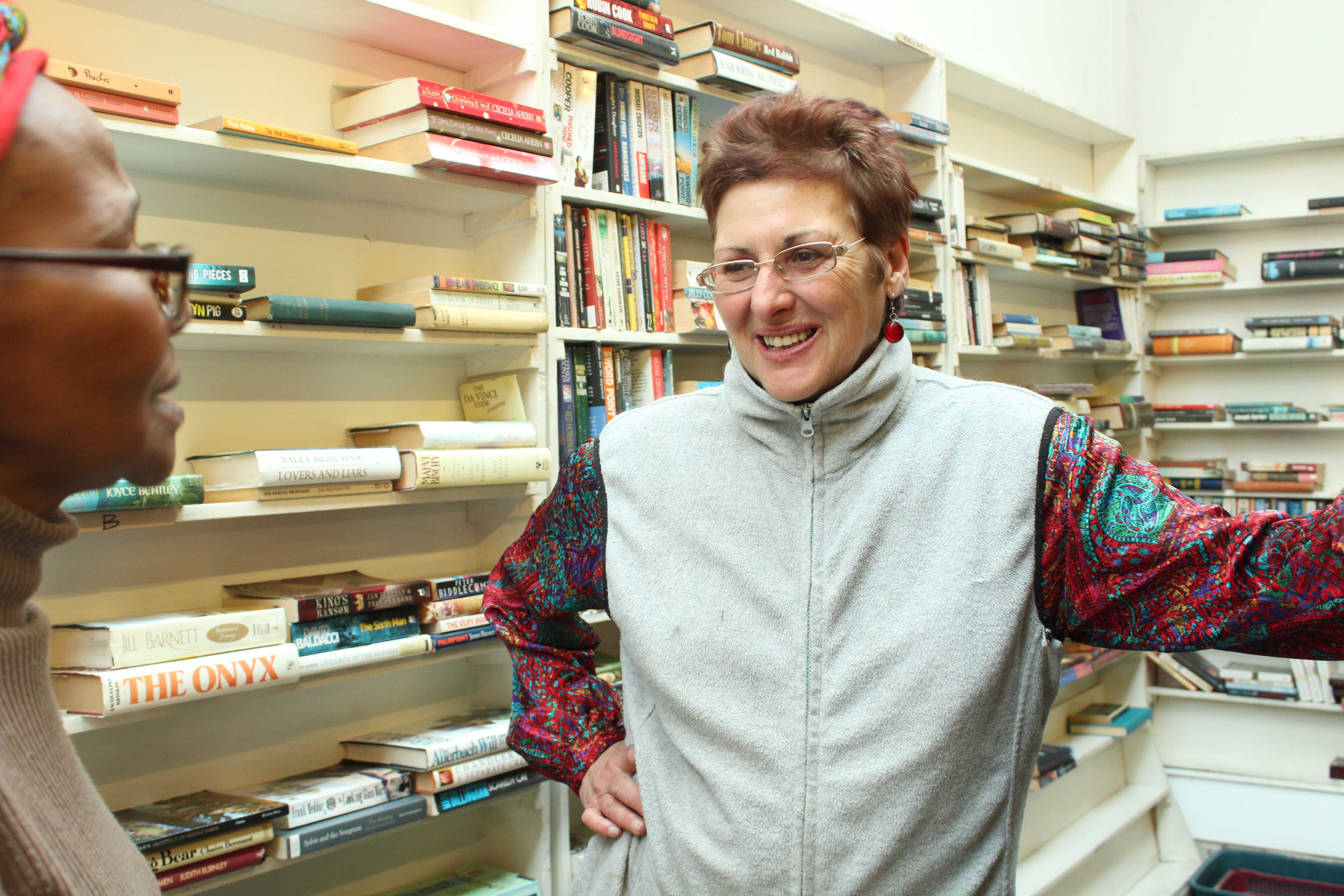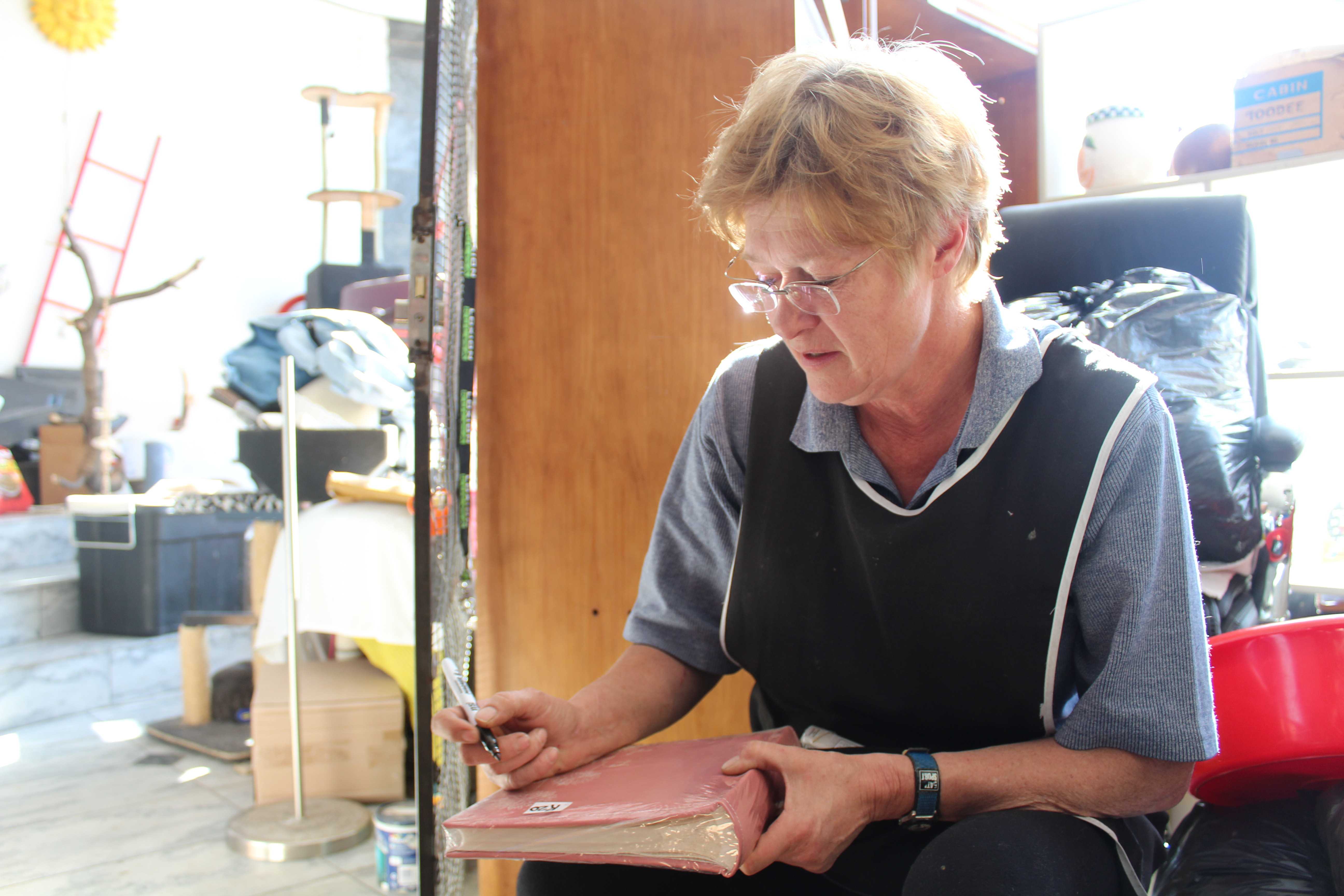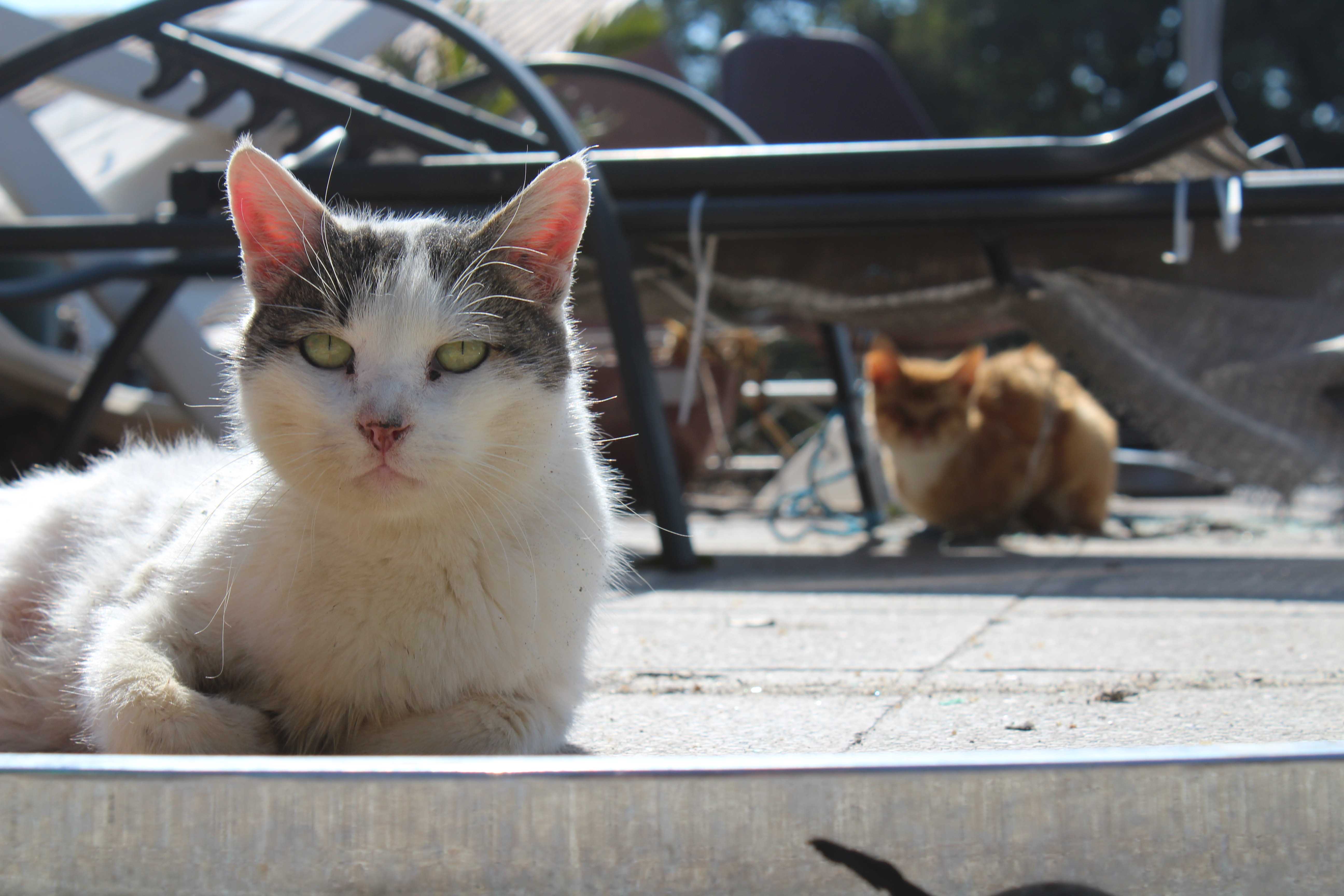Johannesburg, South Africa — Gail Millard, owner of the Bounty Hunters Charity Shop, didn’t remember the customer’s name, but she remembered the woman’s story.
As the customer was dropping off items at the shop in the Melville neighborhood of Johannesburg, she mentioned she was going to have to put her cat down. The retirement community where she was moving did not allow pets, not even her feline companion for 13 years.

Millard took the woman’s donations, and her cat, finding the pet a new home within a few weeks. Then she took in another cat, and another, and another.
That was 20 years ago. Today Millard and a host of volunteers care for more than 80 cats at the two-story building on 4th Avenue. The cats occupy almost every corner of the shop as well as a makeshift sanctuary on the roof.
Frances Perryer, a volunteer for the shop, said before Millard’s work began, a lot of felines wound up on the streets.
“There is heck of a lot of work to do,” Perryer said. “And people are so careless about moving on and leaving their animals behind. It’s depressing really.”

Because the charity shop does not receive any funding from governmental resources, cat lovers like Millard have had to become creative, both financially and physically, about how to provide safe homes for the felines. The National Council of Societies for the Prevention of Cruelty to Animals (NSCPA), the largest animal welfare organization in South Africa, also relies on public support and donations to treat and care for cats and other animals all over the country. But the closest NSCPA branch is a nearly 20-minute drive from Melville, leaving a vacancy for neighborhood care of stray animals.
“A lot of them are sick,” Millard said. “We spend 20,000 rand ($1,452) a month at the vet. We sterilize everything that moves. Then there’s food, another 10,000 rand ($726). We have outreach where we supply food. It just goes on and on like that.”

In order to fund their operation, Millard and her team use the profits from the thrift store. The shop is also supported by local charities, including Four Paws South Africa and the Animal Anti-Cruelty League, but most of the funding comes from sales.
In fact, what brings customers to the shop is not the interesting finds but rather the mission behind the store.
“It’s not about selling the stuff,” said Fanie Du Doit, a customer for over 20 years. “It’s more about the charitable side of looking out for the cats’ well-being. That’s the intrinsic difference. That’s why a lot of people come here, and they support the shop.”
That mission is also why people choose to work at the Bounty Hunters Charity Shop.
“We’re all cat ladies,” said Xenia Kyriacou, who has worked at the shop for the last five years. In exchange for volunteering at the shop, Millard helps Kyriacou with food and vet costs that Kyriacou needs for the 35 cats she has at her own home.
“These cats are coming off of the streets,” Kyriacou said. “If we hadn’t rescued them, they’d be dead. And probably quite in rather horrific ways. It’s not like we go out looking for cats to hoard. We just do what we can.”
For Millard and the volunteers, the end goal is finding people to adopt the cats.
“It’s not about keeping the cats here,” Perryer said. “It’s about rescuing them from awful situations, taking care of the sick, and once they are healthy, finding them a home.”














































